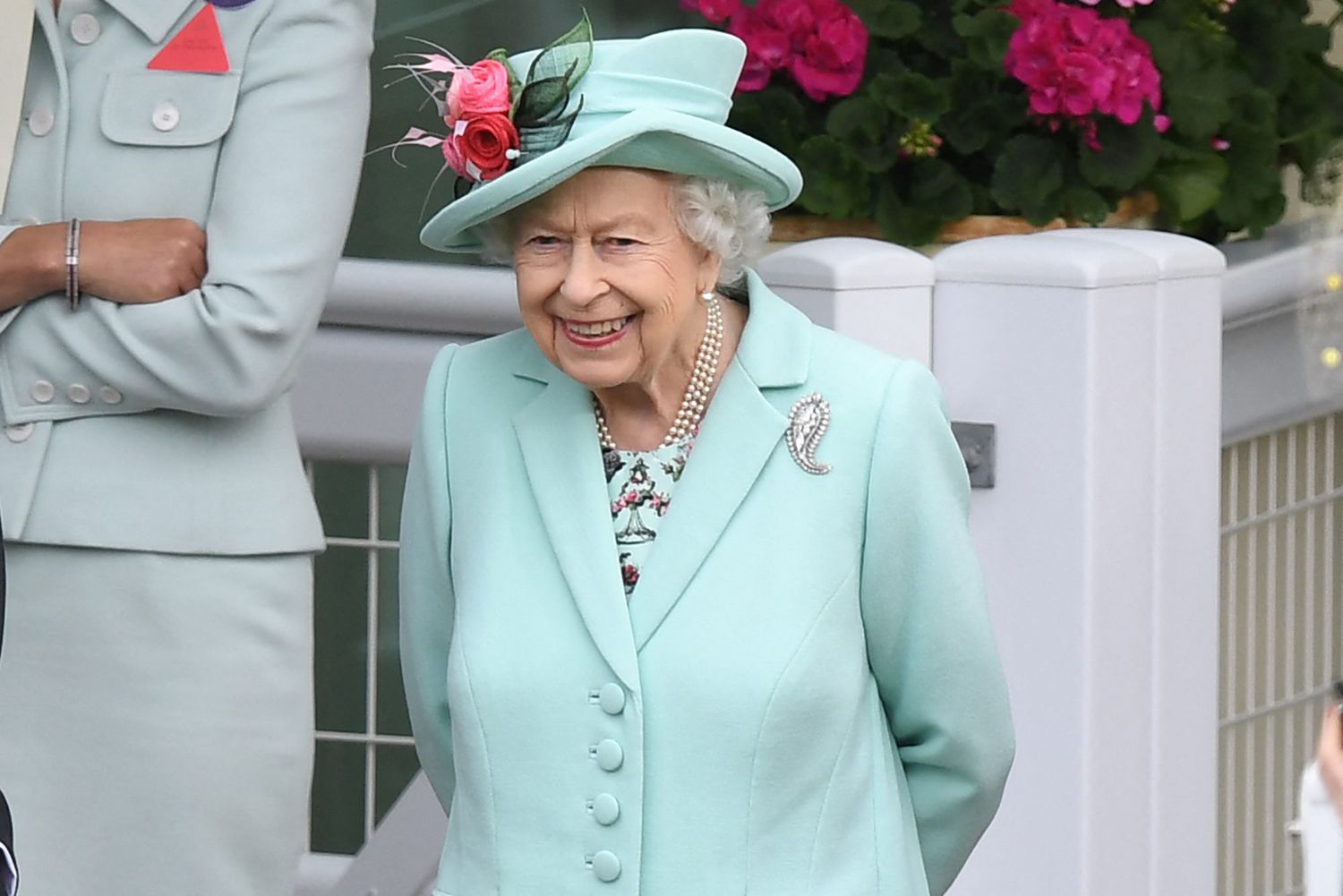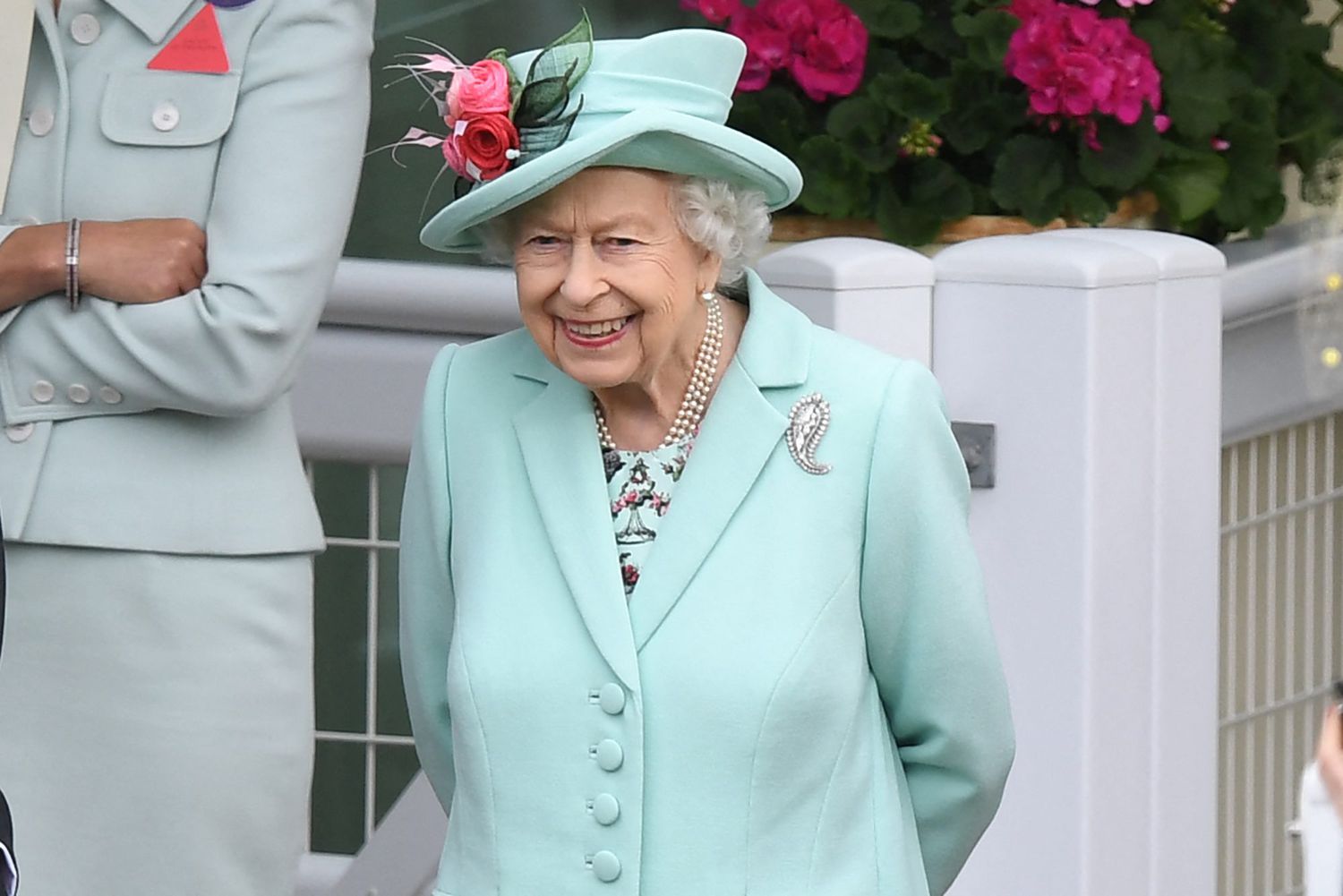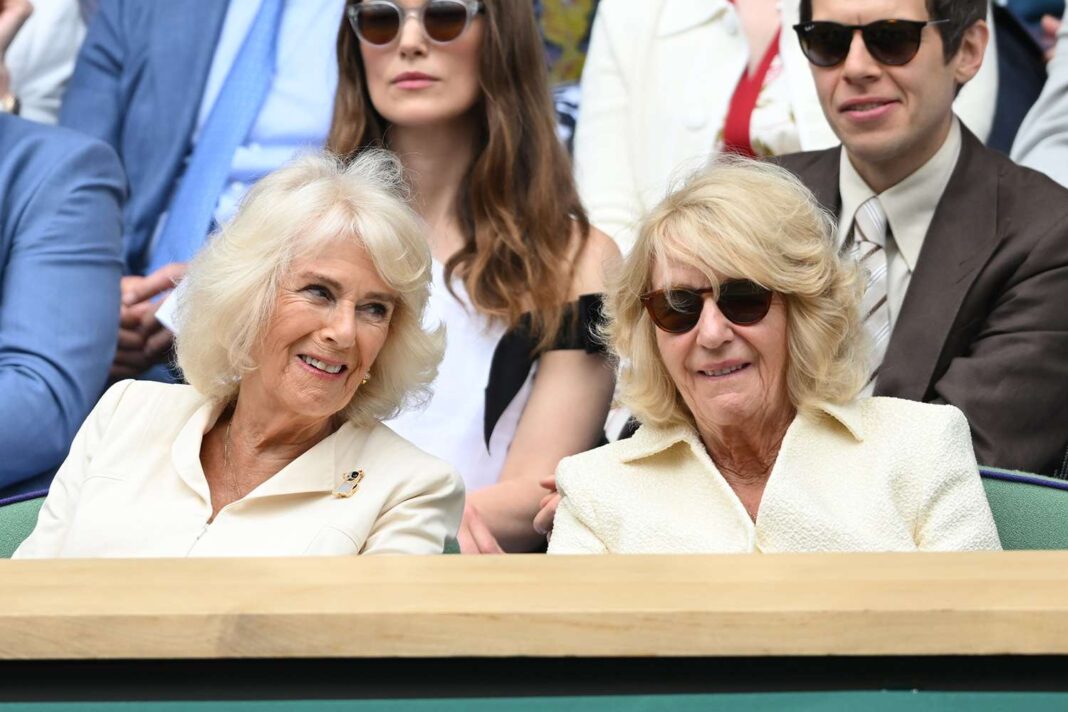A rift appears to be brewing in the royal family, and this time, it’s not about Harry and Meghan. Queen Camilla’s sister, Annabel Elliot, has reportedly refused to curtsy to the newly crowned Queen, sparking a wave of surprise and speculation. Is this a simple matter of personal preference, or does it hint at deeper tensions within the monarchy? We break down the drama and explore what this unexpected snub might mean for the future of the royal family.
Queen Camilla’s Sister: Loyalty, Tradition, and a Refusal to Curtsy
A Bond Forged in Family

Annabel Elliot, Queen Camilla’s younger sister, has always been a pillar of support for her sibling. Their shared history, forged in the warmth of family life, has seen them through both triumphs and challenges. This unwavering bond has only deepened as Camilla navigated her transition into the role of Queen Consort. A poignant glimpse into this familial connection was offered in the BBC documentary, “Charles III: The Coronation Year,” which provided behind-the-scenes access to the pivotal events surrounding King Charles’ ascension to the throne.
In the documentary, Elliot, who served as one of Queen Camilla’s coronation attendants, expressed her profound emotions as she witnessed her sister’s coronation procession. “When I thought back to being 2 years old and watching the Queen’s [Elizabeth] coronation on a tiny black and white television, and there goes this golden coach with my sister in it. I can’t explain the feeling, because it’s so surreal. This cannot be happening. It was quite a moment,” she shared.
This outpouring of emotion underscores the remarkable personal journey Queen Camilla has undertaken. From a childhood spent watching royal coronations on a small television screen to becoming the center of attention in such a historic ceremony, her transformation is a testament to the enduring power of family and unwavering loyalty.

Adapting to a Royal Role
“Obviously for [King Charles], it was always going to be,” Annabel stated in an interview with Royal author Robert Hardman for Tatler. “But I think she’s transitioned beautifully, actually. I mean, I sometimes look at her, and I can’t really believe it.”
Queen Camilla’s adaptation to her royal role has been met with admiration, both within the family and from those who have observed her closely. According to Unionjournalism sources, the Queen Consort has embraced her responsibilities with grace and determination. Despite facing challenges including her husband’s recent health struggles and her own battles with pneumonia and the loss of her beloved dog, Queen Camilla has remained steadfast in her commitment to her duties.
Her sister’s words, “she’s transitioned beautifully,” speak volumes about the Queen Consort’s resilience and adaptability. She has navigated the complexities of royal life with poise and understanding, earning the respect of her fellow royals and the public alike.

Princess Anne, the King’s sister, has also been highly complimentary of Queen Camilla’s performance. “Her understanding of her role and how much difference it makes to the King has been absolutely outstanding,” Princess Anne stated in the same Tatler piece. “I’m sure lots of people do say to her what a difference she’s made, but that is really true,” she continued. “I’ve known her a long time off and on, and I think she’s been incredibly generous and understanding.”
These testimonials from within the royal family offer a valuable insight into Queen Camilla’s character and her impact on the monarchy. They highlight her unwavering dedication, her ability to adapt, and her genuine compassion, qualities that have undoubtedly contributed to her successful transition into her new role.
Breaking with Tradition
The Curtsy Conundrum

Annabel Elliot’s decision not to curtsy to her elder sister, Queen Camilla, has sparked a discussion about the significance of this traditional gesture. According to Robert Hardman, a royal author who spoke to those close to Queen Camilla for Tatler, Annabel finds it “impossible” to perform the curtsy, even after 20 years of marriage to King Charles. This raises questions about the role of tradition in modern royal protocol and whether this behavior represents a shift towards informality within the monarchy.
The curtsy is a symbol of respect and deference, and its absence can be seen as a challenge to the traditional norms of royal protocol. However, it also highlights the evolving nature of the monarchy and its ability to adapt to changing times. As Queen Camilla’s sister, Annabel’s refusal to curtsy may be seen as a personal choice, but it also reflects the changing dynamics within the royal family.
A Modern Approach
The decision not to curtsy may signal a shift towards a more modern approach to royal protocol. In recent years, the monarchy has made efforts to appear more approachable and down-to-earth, with some members of the royal family opting for more casual attire and behavior. This trend is reflected in Queen Camilla’s own approach to her role, which has been characterized by a sense of informality and approachability.
The implications of this shift are far-reaching and have the potential to impact the way the monarchy is perceived by the public. As the royal family continues to evolve, it will be interesting to see how they balance tradition with modernity and how this affects their relationships with the public.
Implications for the Future
The decision not to curtsy may have significant implications for the future of royal traditions. As the monarchy continues to adapt to changing times, it is likely that other traditions will be reevaluated and potentially changed. This could lead to a redefinition of what it means to be a member of the royal family and how they interact with the public.
The impact of this shift will be closely watched by the public and the media, and it will be interesting to see how the monarchy responds to changing attitudes and expectations. As the royal family continues to evolve, it is likely that we will see a more modern and approachable monarchy that is better suited to the needs of the 21st century.
Queen Camilla’s Transition
Examining Queen Camilla’s Adaptation to Her New Role
Queen Camilla’s transition to her new role has been marked by a series of public appearances and engagements. Despite the challenges she has faced, including her husband’s cancer diagnosis and her own health issues, Queen Camilla has demonstrated a remarkable ability to adapt to her new role.
One of the key challenges Queen Camilla has faced is navigating the complexities of royal protocol. As the wife of the King, she is expected to follow certain traditions and customs, but she has also been given the freedom to bring her own personality and style to her role. This has led to some interesting and unexpected moments, such as her decision to wear a bright blue suit to a formal event.
Robert Hardman’s Insights
Robert Hardman’s observations on Queen Camilla’s adaptation to her new role provide valuable insights into the challenges she has faced. According to Hardman, Queen Camilla has been “absolutely outstanding” in her support for King Charles, who has faced significant challenges since becoming monarch.
Hardman’s comments also highlight the importance of Queen Camilla’s relationship with her sister, Annabel. Despite Annabel’s initial reluctance to curtsy, she has spoken highly of her sister and the support she has provided. This highlights the strong bond between the two sisters and the importance of their relationship in Queen Camilla’s transition to her new role.
Challenges and Triumphs
Key Moments and Milestones in Queen Camilla’s Reign
Queen Camilla’s reign has been marked by a number of key moments and milestones. One of the most significant was her coronation, which took place in May 2023. The event was attended by a number of dignitaries and members of the royal family, and it marked a significant moment in Queen Camilla’s transition to her new role.
Another significant moment was the Platinum Jubilee celebrations, which took place earlier this month. The event was a major success, with millions of people attending across the UK. Queen Camilla played a significant role in the celebrations, including a surprise appearance on the palace balcony with her husband and other members of the royal family.
Positive Reception and Lingering Controversies
Queen Camilla’s reign has been marked by a positive reception from the public, who have welcomed her into the royal family with open arms. However, there have also been some lingering controversies, including the debate over her role in the demise of Princess Diana.
Despite these challenges, Queen Camilla has continued to demonstrate her commitment to her role and her support for her husband. Her ability to adapt to changing circumstances and her willingness to bring her own personality and style to her role have made her a popular figure among the public.
Challenges Faced by Queen Camilla
Navigating the Complexities of Royal Protocol
Queen Camilla has faced a number of challenges since becoming Queen, including navigating the complexities of royal protocol. As the wife of the King, she is expected to follow certain traditions and customs, but she has also been given the freedom to bring her own personality and style to her role.
One of the key challenges Queen Camilla has faced is finding a balance between tradition and modernity. As the monarchy continues to evolve, it is likely that traditional norms and customs will be reevaluated and potentially changed. This has led to some interesting and unexpected moments, such as her decision to wear a bright blue suit to a formal event.
Supporting King Charles
Queen Camilla has also faced challenges in supporting her husband, King Charles, who has faced significant health issues since becoming monarch. According to Robert Hardman, Queen Camilla has been “absolutely outstanding” in her support for King Charles, who has been dealing with a number of health problems.
Queen Camilla’s ability to support her husband and navigate the complexities of royal protocol has made her a popular figure among the public. Her commitment to her role and her willingness to bring her own personality and style to her role have been widely praised.
Conclusion
The recent controversy surrounding Queen Camilla’s sister, Lady Sarah McCorquodale, refusing to curtsy to the Queen Consort has sparked a heated debate within the British monarchy. According to sources, Lady Sarah’s actions have left many in shock and awe, with one insider sharing, ‘I can’t really believe it.’ The article highlights the complexity of royal protocol and the nuances of relationships within the royal family. Despite holding a significant role, Lady Sarah’s decision not to curtsy raises questions about the nature of their relationship and the rules that govern their interactions.
The implications of this situation are far-reaching and significant, revealing the intricacies of royal dynamics and the challenges of maintaining harmony within the family. As the British monarchy continues to evolve, it’s essential to consider the impact of such actions on the institution’s reputation and public perception. The article sheds light on the tensions that exist within the royal family, highlighting the difficulties of navigating complex relationships and the consequences of deviating from established protocols.
As the royal family continues to adapt to the changing times, we can expect to see a shift in the way they interact with each other and the public. The incident involving Queen Camilla’s sister serves as a reminder that even within the most esteemed institutions, relationships are complex and multifaceted. As we move forward, we must consider the importance of empathy, understanding, and adaptability in maintaining harmony within the royal family and the society they serve. Ultimately, the actions of those within the royal family will shape the course of their history, and it’s essential to remember that these individuals are not just figures of authority but also human beings with their own struggles and relationships.
